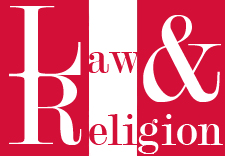 Three years ago when Reptile came out – the book that has revolutionized how many plaintiffs’ attorneys approach a tort case – I wrote what I thought was an interesting post about the use of religion at trial based on the research provided in the book. The premise was that the rules of Scripture are power rules that guide the thinking not only of the pious but command authority as the “ultimate rules” for not only the faithful but the agnostic and even atheists.
Three years ago when Reptile came out – the book that has revolutionized how many plaintiffs’ attorneys approach a tort case – I wrote what I thought was an interesting post about the use of religion at trial based on the research provided in the book. The premise was that the rules of Scripture are power rules that guide the thinking not only of the pious but command authority as the “ultimate rules” for not only the faithful but the agnostic and even atheists.
In Reptile, the importance of using these religious based rules at trial is not just tossed out by the authors – David Ball and Don Keenan – as an option to consider. It is strongly suggested with a prelude that screams to read and take the advice in the chapter serious. I usually listen closely when anyone who gets me $15 zillion in verdicts screams at me. Still, I can’t pull it off. I find these rules persuasive but I would feel transparently manipulative using some Old Testament passage. I think you have to have a certain personality to pull off that kind of thing and I don’t have it. And, honestly, as a Catholic, I feel a little weird about it. I don’t think the Big Guy would mind me using the Book to get monetary justice. But I’m not sure either.
(Some also fear that Scripture is not admissible at trial. But it is in a closing argument. You can quote MC Hammer or George Will in a closing statement at your pleasure.)
Recent Study on Religious References Might Disagree
I read a blog post yesterday from jury consultant Douglas Keene who said something very different.:
We often hear attorneys using religious references or talking about their Sunday School class in the Bible Belt states. They are doing it as a means of relating to jurors their shared beliefs and values. It says “I am like you, and what I represent is our common belief.” What this research suggests is that they may also be unwittingly ‘priming’ jurors to have more negative racial attitudes by activating ‘in group’ (‘the white people with whom I worship’) versus ‘out group’ (all those black folks out there) reactivity.
Okay, that makes sense. No wait! That is crazy! Invoking religion turns people against African-Americans? So what did the study say that prompted this theory?
In the current study they used the words: Bible, faith, Christ, church, gospel, heaven, Jesus, Messiah, prayer, and sermon. They countered these religious primes with neutral primers (shirt, butter, switch, hammer, etc.). Then they measured racial attitudes toward African Americans. After performing two different experiments (one measuring subtle prejudice and the second measuring overt prejudice)—they found that “activation of Christian religious concepts increases subtle and overt prejudice towards a racially disadvantaged group”.
I have no reason to disbelieve the study. But what it tells me is that racists – both overt and closet – are idiots. Black Americans are the most religious in the United States, according to a Gallup Poll. More than half of black Americans consider themselves very religious compared to 39 percent of white America. So that is just stupid.
But the message from this if you have a black client and a white jury, biblical references might be the worst thing you do.
Picking Jurors and Religion
David Ball will tell you to avoid religious fundamentalists at trial because some believe that calamity is probably the consequence of wrongdoing and that maybe compensation by a lawsuit is against God’s will. They might also think that good, decent people would not stoop to suing each other. I tried to google some references to how different religions view lawsuits but the-all knowing Google can’t figure out what I’m asking for. All the results are related to lawsuits involving religious freedom. I tried to get the Pope’s view and just found a lot of depressing references to the sex abuse cases that have plagued the Church.
Is there truth to this idea that deeply religious people are less likely to award compensation for injury or death cases? I have no idea. There is probably some correlation, but I suspect it is another thing where broad-brush stereotypes fail.
I don’t really care much, either, outside of my intellectual curiosity. In Maryland, our voir dire is so restrictive. I have a better chance of figuring out the name of their third-grade teacher then I would their religious proclivities.
 Maryland Injury Law Center
Maryland Injury Law Center

